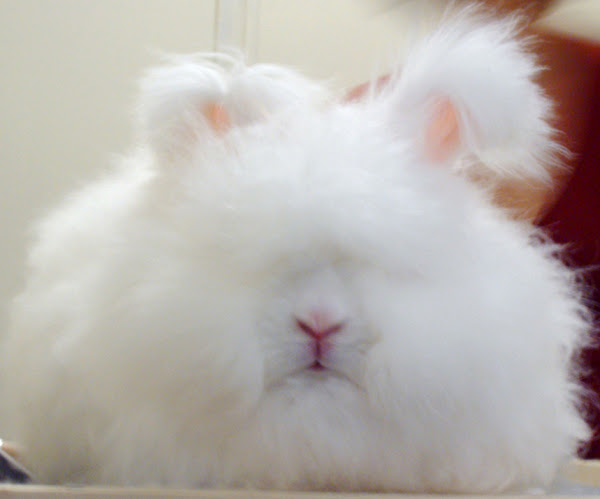So, you’ve got yourself an adorable Angora rabbit and you’re worried about them packing on the pounds? Don’t worry, we’ve got you covered! In this article, we’ll share some handy tips to help you prevent your Angora rabbit from becoming overweight, even with their naturally sedentary lifestyle. It’s time to keep those fluffy friends fit and healthy!
1. Provide Adequate Exercise
Encourage daily playtime
One of the most effective ways to prevent your Angora rabbit from becoming overweight is to ensure they get adequate exercise. Angora rabbits, like all rabbits, have a tendency to be sedentary, so encouraging them to engage in daily playtime is essential. Set aside a specific time each day for play, and create a stimulating environment that motivates your rabbit to move around and be active.
Use appropriate toys and obstacles
To make playtime more enjoyable for your Angora rabbit, provide them with a variety of toys and obstacles. Toys such as tunnels, balls, and chew toys help stimulate their minds and encourage physical activity. Additionally, placing obstacles such as low jumps or platforms can add a fun challenge to their exercise routine.
Set up a safe and spacious exercise area
Creating a safe and spacious exercise area for your Angora rabbit is crucial. This area should be free from hazards, such as electrical cords or toxic plants, and should provide enough room for your rabbit to move freely. Consider using a pen or designated play area to ensure their safety while exercising.
Supervise exercise sessions
While your Angora rabbit is engaging in playtime or exercise, it’s important to supervise them closely. This allows you to ensure their safety and intervene if any issues arise. Additionally, supervising their exercise sessions allows you to actively participate in their play, building a stronger bond between you and your furry friend.
2. Monitor Food Intake
Measure the daily portions
To prevent your Angora rabbit from gaining excess weight, it’s crucial to monitor their food intake. Measure out their daily portions according to their specific dietary needs. Consult with a rabbit-savvy veterinarian to determine the appropriate amount of food for your rabbit’s size, age, and activity level.
Choose a balanced diet
A balanced diet is essential for maintaining your Angora rabbit’s weight. Provide them with high-quality pellets specifically formulated for rabbits. Additionally, incorporate fresh vegetables and high-quality hay into their diet. This combination ensures they receive the necessary nutrients while preventing overconsumption of calorie-dense foods.
Avoid excessive treats
While it’s tempting to spoil your Angora rabbit with treats, it’s important to avoid excessive indulgence. Treats should only be given occasionally and in small quantities. Overfeeding treats can quickly lead to weight gain and other health issues. Opt for healthy, rabbit-friendly treats in moderation to reward good behavior or for training purposes.
Consider dietary supplements
In some cases, dietary supplements may be necessary to support your Angora rabbit’s overall health and weight management. Consult with your veterinarian to determine if any particular supplements, such as those containing essential vitamins or fiber, are suitable for your rabbit’s specific needs. Remember to always follow the recommended dosage provided by the veterinarian.
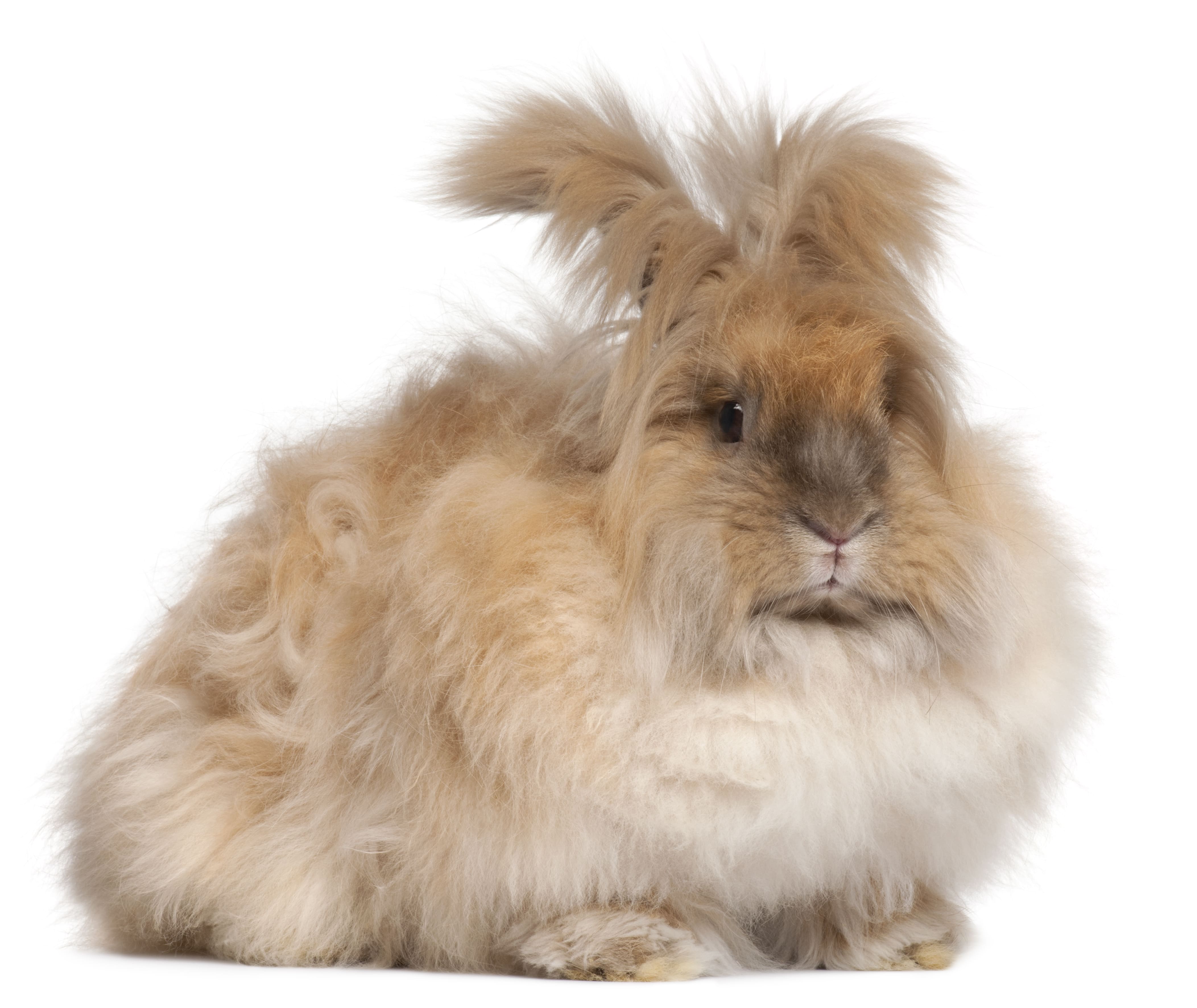
3. Implement a Feeding Schedule
Establish a regular feeding routine
Establishing a regular feeding routine is essential for preventing your Angora rabbit from becoming overweight. Set specific feeding times and stick to them consistently. This routine helps regulate their metabolism and prevents them from overeating.
Limit the number of meals
While it may be tempting to provide your Angora rabbit with unlimited access to food, it’s important to limit the number of meals they receive. Most rabbits thrive on two to three meals per day. By providing fewer meals, you can better control their portion sizes and prevent overfeeding.
Resist overfeeding
Overfeeding is a common mistake made by rabbit owners, as rabbits have a tendency to constantly eat if given the opportunity. However, it’s important to resist the urge to overfeed your Angora rabbit. Follow the portion sizes recommended by your veterinarian and monitor their weight regularly.
Spread out meals throughout the day
To prevent your Angora rabbit from feeling hungry between meals, consider spreading their meals out throughout the day. This can help keep them satisfied and prevent excessive grazing. However, be mindful of the total amount of food they consume in a day to avoid overfeeding.
4. Provide High-Quality Hay
Make hay a staple of the diet
High-quality hay should be a staple in your Angora rabbit’s diet. Hay provides essential fiber, aids in digestion, and helps prevent tooth problems. It also keeps your rabbit occupied and prevents boredom-induced overeating. Offer an unlimited amount of hay to your Angora rabbit daily.
Offer a variety of hay types
Offering a variety of hay types can provide your Angora rabbit with different textures and flavors, making their diet more interesting. Popular hay options for rabbits include Timothy hay, orchard grass, and meadow hay. Observe your rabbit’s preferences and adjust accordingly.
Ensure fresh and clean hay
To ensure your Angora rabbit’s hay remains fresh and clean, store it in a dry and cool area. Avoid exposing the hay to moisture, as it can become moldy and harmful to your rabbit’s health. Replace the hay in their feeding area regularly to maintain freshness.
Monitor hay consumption
Observe your Angora rabbit’s hay consumption to ensure they are eating a sufficient amount. A decrease in hay intake may indicate an underlying health issue and should be brought to the attention of a veterinarian. Adjust the amount of hay provided if necessary, based on your rabbit’s appetite and overall health.
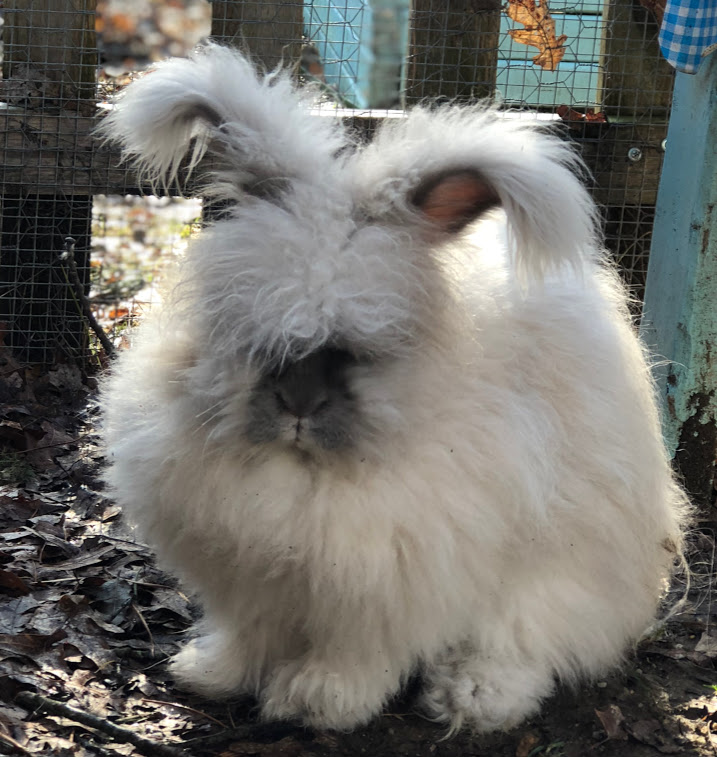
5. Incorporate Fresh Vegetables
Introduce a variety of vegetables
Fresh vegetables are an important component of your Angora rabbit’s diet. Introduce a variety of rabbit-safe vegetables to provide them with essential vitamins and minerals. Offer options such as leafy greens (e.g., kale, spinach), bell peppers, carrots, and broccoli. Consult with your veterinarian to determine which vegetables are suitable for your rabbit and their specific dietary needs.
Follow proper portion sizes
While vegetables are beneficial, it’s important to offer them in appropriate portion sizes. Too many vegetables can lead to an imbalance in your Angora rabbit’s diet and potential weight gain. Follow your veterinarian’s recommendations for portion sizes and monitor your rabbit’s weight to ensure they maintain a healthy balance.
Avoid high-sugar and high-starch vegetables
While it’s important to incorporate fresh vegetables into your Angora rabbit’s diet, it’s essential to avoid high-sugar and high-starch options. These vegetables, such as corn or peas, can contribute to weight gain and other health issues. Stick to low-sugar and low-starch options to keep your rabbit’s diet balanced.
Gradually introduce new vegetables
When introducing new vegetables to your Angora rabbit’s diet, do so gradually. This allows their digestive system to adjust and reduces the risk of stomach upset. Add one new vegetable at a time, and monitor their response to ensure they tolerate it well. If any signs of digestive distress occur, discontinue offering that particular vegetable.
6. Offer Limited Pellets
Choose high-fiber, low-calorie pellets
When selecting pellets for your Angora rabbit, opt for high-fiber, low-calorie options. These pellets provide the necessary nutrients while minimizing excessive calorie intake. Avoid pellets with added sugars, artificial flavors, or unnecessary fillers. Consult with your veterinarian to determine the best pellet brand for your rabbit’s specific needs.
Control the pellet portion size
Controlling the pellet portion size is crucial in preventing your Angora rabbit from becoming overweight. Follow the recommended portion size provided by the pellet manufacturer, as these can vary based on the brand and the rabbit’s size and activity level. Measure the pellets accurately to avoid overfeeding.
Avoid continuous pellet availability
While pellets are an important part of your Angora rabbit’s diet, it’s crucial to avoid providing them with continuous access to pellets throughout the day. This can lead to overeating and weight gain. Instead, offer limited portions of pellets during specific meal times, and remove any uneaten pellets after a certain period.
Consult with a veterinarian for the appropriate pellet brand
Each Angora rabbit may have unique dietary requirements, so consulting with a veterinarian knowledgeable about rabbits is essential. They can recommend a pellet brand suitable for your rabbit’s specific needs, taking into account their age, weight, and any underlying health conditions. Regularly review and adjust the pellet brand or portion size based on your veterinarian’s guidance.
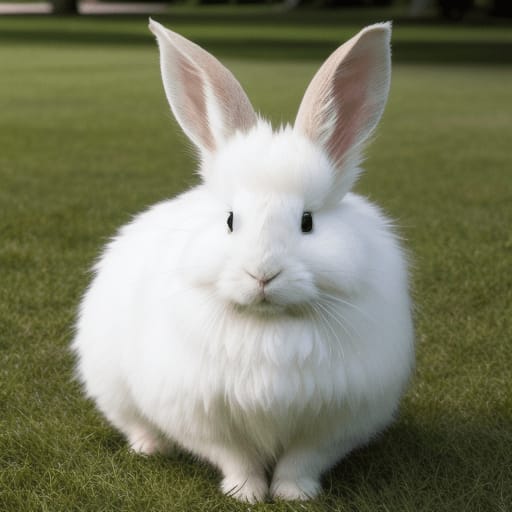
7. Ensure Clean Water Supply
Provide fresh and clean water daily
Clean and fresh water is crucial for your Angora rabbit’s overall health and well-being. Ensure they have access to clean water at all times by providing fresh water daily. Use a clean water bowl or a drip-feeder designed for rabbits, ensuring it is free of any contaminants or algae build-up.
Use drip-feeders or water bottles
Using drip-feeders or water bottles can help ensure a constant supply of clean water for your Angora rabbit. These options prevent contamination and minimize spillage, reducing the risk of dehydration. Regularly check the water bottle or drip-feeder to ensure it is working properly and refill as needed.
Regularly check water intake
Monitor your Angora rabbit’s water intake regularly to ensure they are drinking an appropriate amount. A decrease in water consumption may indicate an underlying health issue or dehydration. If you notice any significant changes, consult with a veterinarian to determine the cause and appropriate action.
Prevent dehydration
Dehydration can have severe consequences for rabbits, so it’s essential to take necessary measures to prevent it. In addition to providing clean water daily, consider offering water-rich vegetables such as cucumbers or lettuce to supplement their hydration. Ensure your Angora rabbit has access to fresh water even when you are not present, especially during hot weather.
8. Seek Veterinary Guidance
Consult with a rabbit-savvy veterinarian
Regularly consulting with a rabbit-savvy veterinarian is vital for the overall health and weight management of your Angora rabbit. They can provide tailored advice based on your rabbit’s specific needs, diet, and overall well-being. Find a veterinarian experienced in rabbit care and schedule regular check-ups to address any concerns.
Discuss weight management strategies
During your veterinarian consultations, discuss weight management strategies specific to your Angora rabbit. They can help determine the ideal weight range for your rabbit’s breed and provide guidance on adjusting their diet and exercise routine accordingly. Regularly monitoring your rabbit’s weight and body condition will aid in early detection of any weight-related issues.
Stay updated on general health check-ups
In addition to weight management, it’s crucial to stay updated on your Angora rabbit’s general health check-ups. Regular veterinary check-ups can identify and address any underlying health issues that may contribute to weight gain or other concerns. Follow the recommended vaccination schedule and seek veterinary care promptly if you notice any unusual symptoms or behaviors.
Address any underlying health issues
If your Angora rabbit has any underlying health issues, it’s important to address them promptly to prevent weight gain or further complications. Work closely with your veterinarian to develop an appropriate treatment plan that takes into account their specific condition and dietary requirements. Timely intervention and proper care can significantly impact your rabbit’s overall health and weight management.
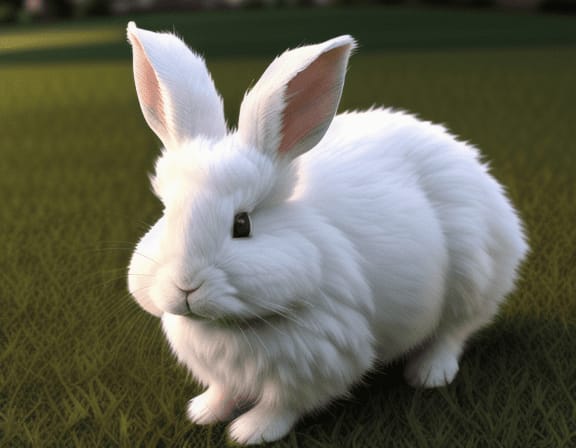
9. Monitor Body Condition
Familiarize yourself with a rabbit’s body condition score
Familiarize yourself with a rabbit’s body condition score to effectively monitor your Angora rabbit’s weight and health. This scoring system helps assess the rabbit’s body fat and overall condition. Regularly evaluate your rabbit’s body condition to ensure they are within a healthy weight range for their breed, age, and size.
Regularly check and record the rabbit’s weight
Weigh your Angora rabbit regularly using an accurate scale and record their weight over time. This tracking provides valuable insights into their weight trends and allows you to promptly address any weight gain or loss. Consult with your veterinarian if you notice significant fluctuations in their weight.
Observe physical changes
Besides weight, it’s important to observe any physical changes in your Angora rabbit. Monitor their body shape, fur appearance, and overall activity levels. Changes such as excessive weight gain, loss of muscle tone, or a decrease in overall energy may indicate an underlying issue that requires veterinary attention.
Adjust diet and exercise as necessary
Regularly reassess and adjust your Angora rabbit’s diet and exercise routine based on their body condition and any changes you observe. If weight gain occurs, consult with your veterinarian to determine the appropriate adjustments needed. This may involve reducing portion sizes, increasing exercise, or modifying their overall diet. Maintaining a balance between diet and exercise is key to managing your rabbit’s weight effectively.
10. Provide Mental Stimulation
Offer interactive toys and puzzles
In addition to physical exercise, providing your Angora rabbit with mental stimulation is crucial for their overall well-being. Offer interactive toys and puzzles that encourage problem-solving and engage their minds. Toys such as treat-dispensing balls or puzzle feeders can keep them mentally stimulated while preventing boredom-induced overeating.
Rotate toys regularly
To keep your Angora rabbit engaged, rotate their toys regularly. Introducing new toys or rotating existing ones helps prevent them from losing interest and encourages continued mental stimulation during playtime. Be mindful of providing safe and rabbit-friendly toys that are free of small parts or potentially hazardous materials.
Engage in gentle and stimulating activities
Engaging in gentle and stimulating activities with your Angora rabbit is a wonderful way to provide both mental and physical exercise. Spend quality time interacting with your rabbit by offering toys, grooming sessions, or even supervised outdoor exploration in a safe and secure environment. This bond-building activity helps reduce stress and promotes an active lifestyle.
Avoid prolonged isolation
Rabbits are social animals and thrive when they have companionship. Avoid leaving your Angora rabbit in prolonged isolation, as this can lead to boredom, depression, and overeating. If you are unable to provide constant interaction, consider adopting a compatible rabbit companion or create opportunities for scheduled playdates with other rabbits to promote mental stimulation and socialization.
By following these tips and implementing a balanced diet, regular exercise, and mental stimulation, you can help prevent your Angora rabbit from becoming overweight due to their sedentary lifestyle. Remember to consult with a veterinarian for personalized advice and to address any specific concerns related to your rabbit’s health and weight management.
